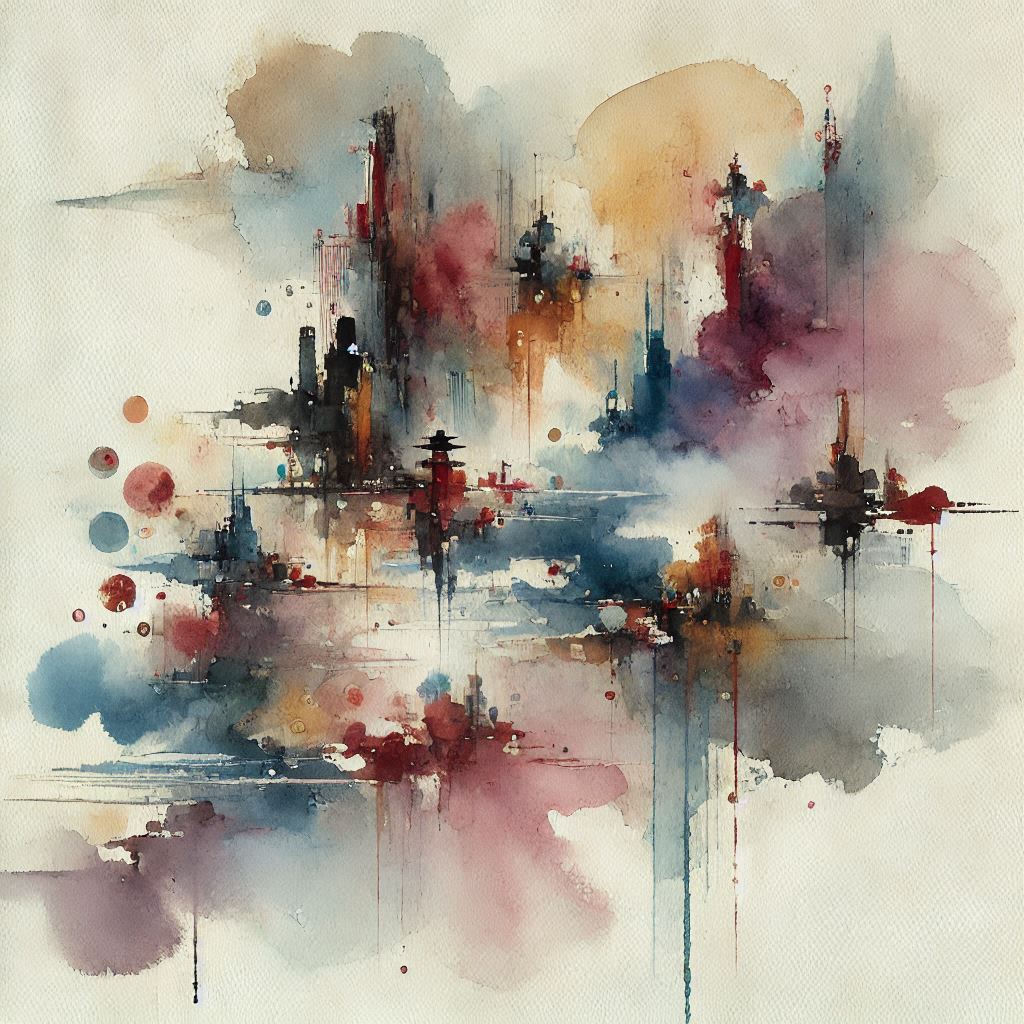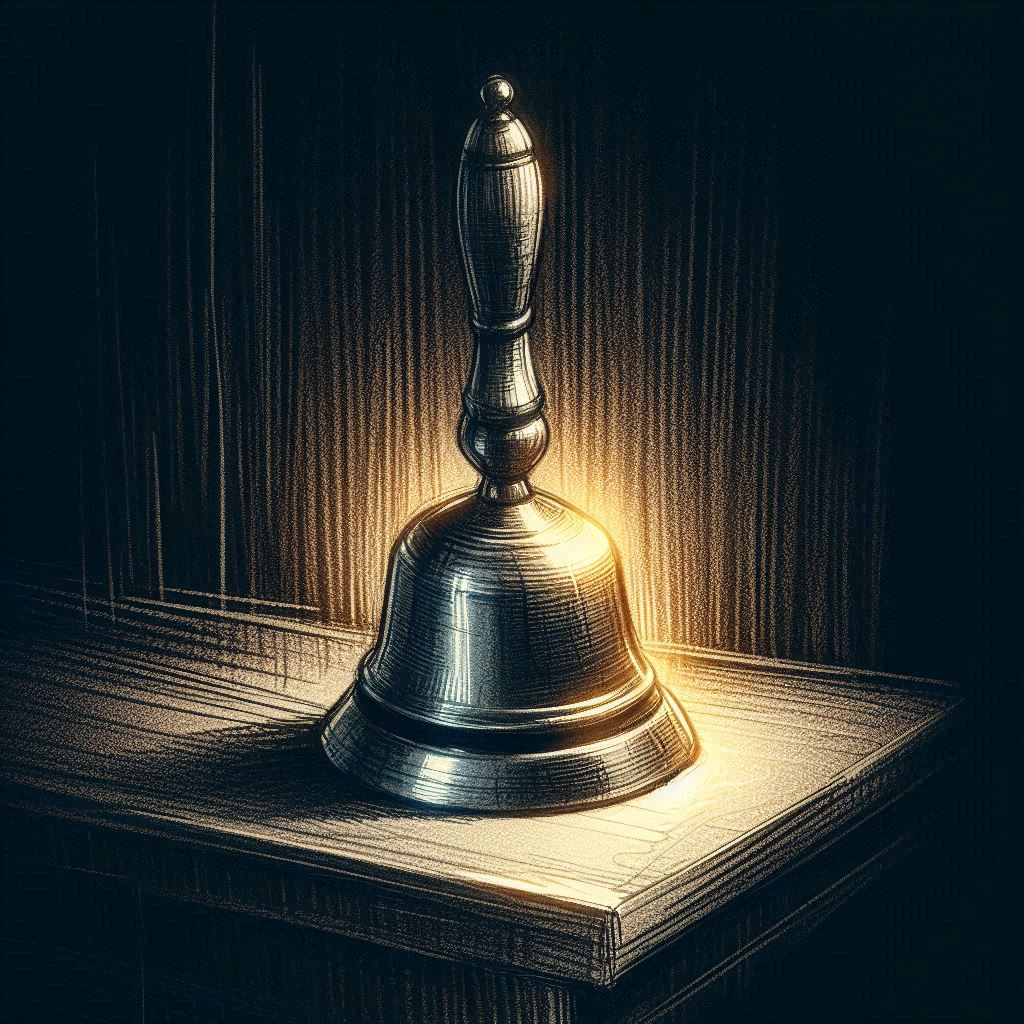
Jack’s Angel
I may need to spend the rest of my Fourths of July in Princeton. I will not be there for General Washington nor the blue fireworks over Palmer Square. The Yankee Doodle Tap Room will toast freedom without me. I will be in the garden with Jack’s angel again.
We usually save our specters for October, but I cannonballed through the veil last July. Five years of firebombing had left love’s city in ruins. On the burning rim of summer, I agreed it wouldn’t be honest for me to join the family barbeque. My husband would eat the steaks and ride the pool floats and explain, in his own words, why I would be spending the fourth in Princeton.
I offered him no assistance. I couldn’t quite explain it to myself.
Perhaps my explanations were depleted from war without end. I had been our narrator, writing revisionist history in real-time. My anthems blared at increasingly desperate volume over five years: Our marriage is a covenant.
My love was irrevocable. His contempt was constitutional.
The court was in session all year. I accepted every verdict. I was wordy and wiry and weird, all books and daisies. I was innocent and exuberant and embarrassing, dimwit trust under a bright flag. I had no defense for disliking hamburgers and sex jokes. I had too many epiphanies, making his eyebrow twitch with my insufferable “God winks.”
We had a covenant. Independence was not an option. But on the hinge of July, he unfurled the impossible flag.
He would tell his parents we had “problems.” He would tell his niece, “Sometimes things don’t work out.” He would tell me the truth I thought I had feared.
I would tell Jack.
Dead for a decade, Jack was my bristling sibyl. I had been his Master of Divinity student at Princeton Theological Seminary, an improbable outpost of grainy devotion.
PTS was three years of proof that I was not the last of my kind. Presbyterians and poets chased grace with whole-wheat realism. Hearts and minds and third-story windows were open, and none could predict what buzzards or six-winged seraphs might swoop in. It was heady and holy and hazardous to one’s sense of feeling alone. It was my capital.
Jack was as unsentimental as I was gooey, yet ours was an instant bond. The transcript will tell you that we met over Dutch Prime Minister Abraham Kuyper’s theory of common grace, but I will tell you that we connected. This is the rarest experience of being alive, and it outlasts life.
Jack began class with a thunderous autobiography. He’d grown up in granite New England, where generations had long since agreed that faith was no fortress. The ceremonials survived, but cool heads snuffed excess trust. Earth Day received more reverence than Easter.
Then Jack came home from doctoral studies declaring revolution. Right in the capitals of cerebral victory, where Ivy writes law, Jack found faith, fervent and foolish as mercy. His family was aghast. His mentors were gutted. His laugh would be the last, as his five-decade career made him a fifty-star general across the Ivy League.
Kuyper was his meal ticket, but Jack’s joy was stationing troops between “contract” and “covenant.” One declared us useful to each other; the second made us belong to each other. One was the way of the world, brokenhearted and grasping; the second was the better world, born by night in guerrilla acts of grace.
One was understandable. The second was unconditional.
One was insured. The second was insane.
I was infatuated. I was in.
For two years, I walked with Jack. As sappy as a boulder, he blocked easy roads. If virtue meant anything, it would be worked out in the grievous, granular details of days. Ethics wore overalls, not lace. The world would not understand “irrevocable.” Beachheads would be few and fragile.
But the war was worth waging. We could write and work and wield mercy, minute by minute. We could declare interdependence. We could commit acts of loyalty and unfurl a better world. Along the way, we would become best friends.
Jack wanted my story rumpled and disorderly. He sought to understand my diabetes and championed my bond with my mother: “Don’t ever lose that.” He told me that I would be his Secretary of State if ever he should run for president.
“Me? The world’s toastiest marshmallow?”
“Certainly. You have the head and the heart.”
He wanted me to pursue my Ph.D. at the Free University of Amsterdam: “I assure you, you will pick up Dutch in months.” He wanted to protect me from the cynics of the academy and anyone who would dare to change me. He had survived, and so would I. “You must be wise as serpents and innocent as doves,” he quoted his Lord, “but strategy must never change your heart.”
Jack’s big heart gave out three years after my graduation, and I grieved intensely. His family requested donations to a crisis home for runaways and battered women, a kindness that left me with questions. I donated and wrote his widow a letter ten times too toasty.
More than a professor, more than a surrogate grandfather, Jack had been a pilgrim from the better world, all brash bald permission to believe. I continued to talk to him, as one does when friendship is irrevocable. And on Independence Day, I needed his blessing.
“What will you do in Princeton?” my husband asked as he gathered his swim trunks and his version of the story.
“I don’t know. Just walk around.” I knew.
“Well, it was always your happy place, right?”
“Sure.” Sure. Yes, in the same measure that Washington was an adequate leader. I’d been back many times since graduation, opening my windows to breathe seminary air. But this time was about Jack and permission.
I stumbled across my favorite town, cheap sandals slicing my heels. I’m heartbroken, I asserted. I abhor divorce; I declared interdependence. I made a covenant. I’m sorry. I’m sorry. I’m sorry. Princeton, I’m sorry. Jack, I’m sorry.
I passed the University Chapel, a Gothic behemoth, where I’d received my preposterous degree. The doors were locked, and a man built like an oboe was gazing up. Fireworks filled his cheeks as I approached.
“Wanna break in with me?”
I laughed. I blushed. I was sorry.
Familiar sidewalks led home to the seminary campus, our humbler chapel, and its rose garden. I slumped on the bench. Jack. Jack. I believe in nothing so much as covenant love, and here I am, letting it collapse.
I did not hear his voice. I heard my own. Jack, I want it to collapse. I breathed Princeton air. Jack. He opened the cage, and the bird flew out. This is my chance. But I don’t want to want this.
The silence was not empty.
It’s wrong, isn’t it, Jack? Am I not called to live what I believe, especially when it’s hard? Isn’t marriage an icon – Christ’s love for his people?
The roses were red as wounds.
Jack, am I giving up? Am I being given resurrection? Do I get to keep my heart? Do I get to keep my faith?
I can’t tell you what unfurled in that hour, but I can tell you that I may need to spend the rest of my fourths of July in Princeton. I have been drawn and quartered by choices I cawed that I would never make. I have burned to ash and risen like revolution. I have overestimated answers and slept soundly under mysteries. I have broken free and broken contract. I believe in terribly gentle irrevocables.
I am walking towards a better world.
Suggested Reading
-
about Lollipop, Lollipop![Lollipop]()
Featured • Fiction • Nonfiction
Lollipop, Lollipop
The figure moved slowly, deliberately, its shrouded head turning towards Josh. Those eyes—sharp and frigid as icepicks—stared at him. The man’s black lips never moved, even as a word pierced him like a yell: “Beware.”
Featured • Fiction • Nonfiction
-
Nonfiction
-
Flash • Nonfiction



